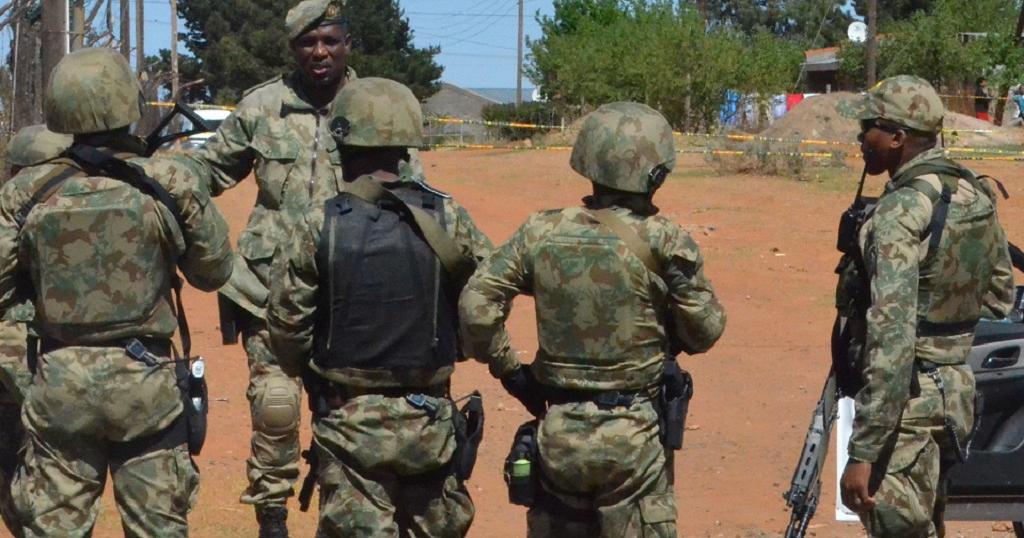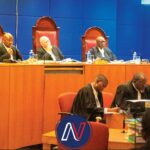Lerato Matheka
The Director of Public Prosecutions, (DPP) Hlalefang Motinyane, says charged soldiers must be denied bail because of the risk they pose to national security.
The DPP said this in her affidavit in the bail application of Motsieloa Leutsoa and Tsitso Ramoholi.
The duo facing charges of murder have applied for bail citing poor prison conditions.
In my viewpoint, the criminal trails in respect of the offences the applicants have been charged with alongside the former army commander and senior officers are complex and require a lengthy duration to finalise to an extent that during their progress, the applicants must remain in custody because of the risk they pose to national security.
It stands a reason that national security is the responsibility of the executive, and the courts of law should not attribute to themselves superior wisdom in matters entrusted to other branches of government, she said indicating that the applicants are implicated in the murder of Sub-Inspector Mokheseng Ramahloko and Lieutenant General Maaparankoe Mahao .
She added that the applicants have not proven exceptional circumstances for their release on bail in view of the delicately poised security situation in Lesotho.
Some of their co-accused like Tumo Lekhoa have already skipped the country to avoid criminal prosecution and applicants are likely to abscond if released on bail. The applicants have been identified as some of the people responsible for the commission of crimes, and international community had helped in the sense and to the degree appropriate to facilitate prosecution of their criminal trails fairly and impartially under our criminal justice system, Motinyane said adding that the applicants bail application was previously refused.
She indicated that the applicants have always known from around August 2014 and June 2015 that they were wanted in connection to the murders under consideration.
They did not cooperate with the police and they would not be arrested or be charged because they were in league with the people in power. This has led to the involvement of the international community in stabilising important institutions of the state such as the police by facilitating the prosecution of criminal cases of army officers involved, she said.
She rubbished allegations of poor prisons conditions noting that the Maseru Correctional Institution receives support from the government in their onerous duties to facilitate the welfare of the applicants.
Motinyane further pointed out that for the first time in the history of Lesotho, Applicants have taken the legal concept of proof of exceptional circumstances as appears in Section 109A of the Criminal Procedure and Evidence Amendment Act 10 of 2002 to the constitutional court.
They appreciate the effect of this section which is that the bail application attracts a reverse onus to proof that his release on bail is permitted only in circumstances that are exceptional. The major complaint of the applicant is that in enacting section 109A of the Criminal Procedure and Evidence Amendment Act of 2002, the legislature did not see it fit to clearly define what exactly is meant by the term exceptional circumstances in requiring that the bail applicant should prove same. It is certainly the purpose of this affidavit to address the novelty of some of the circumstances arising in this case.
I hold the view that it is both a basic and fundamental principle of our law that applicants for bail must prove exceptional circumstances, the DPP said.
Summary
- In my viewpoint, the criminal trails in respect of the offences the applicants have been charged with alongside the former army commander and senior officers are complex and require a lengthy duration to finalise to an extent that during their progress, the applicants must remain in custody because of the risk they pose to national security.
- It stands a reason that national security is the responsibility of the executive, and the courts of law should not attribute to themselves superior wisdom in matters entrusted to other branches of government, she said indicating that the applicants are implicated in the murder of Sub-Inspector Mokheseng Ramahloko and Lieutenant General Maaparankoe Mahao .
- The major complaint of the applicant is that in enacting section 109A of the Criminal Procedure and Evidence Amendment Act of 2002, the legislature did not see it fit to clearly define what exactly is meant by the term exceptional circumstances in requiring that the bail applicant should prove same.

Your Trusted Source for News and Insights in Lesotho!
At Newsday Media, we are passionate about delivering accurate, timely, and engaging news and multimedia content to our diverse audience. Founded with the vision of revolutionizing the media landscape in Lesotho, we have grown into a leading hybrid media company that blends traditional journalism with innovative digital platforms.








